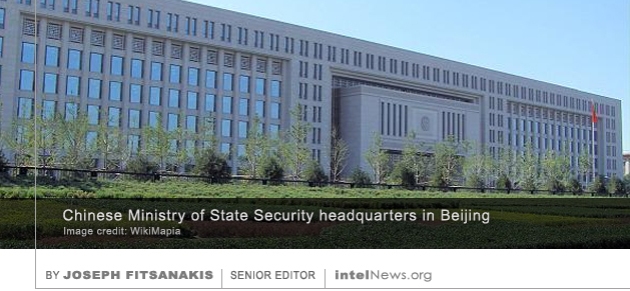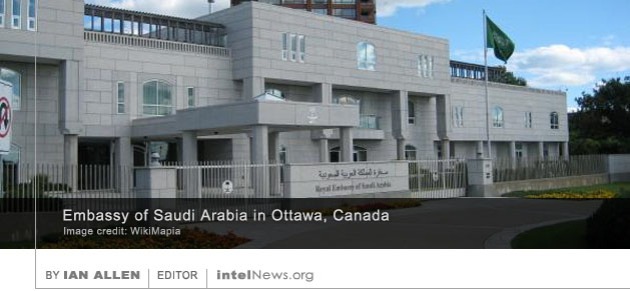US arrests two over alleged clandestine Chinese police station in New York City
April 18, 2023 2 Comments
 THE UNITED STATES HAS arrested two residents of New York City for allegedly conspiring to create and operate a clandestine police station run by the Chinese government in the borough of Manhattan. The arrests come a month after authorities in Canada launched an investigation into allegations that the Chinese government was running at least two clandestine police stations in Montreal and four more in Toronto.
THE UNITED STATES HAS arrested two residents of New York City for allegedly conspiring to create and operate a clandestine police station run by the Chinese government in the borough of Manhattan. The arrests come a month after authorities in Canada launched an investigation into allegations that the Chinese government was running at least two clandestine police stations in Montreal and four more in Toronto.
The allegations first surfaced in a 2022 report by Safeguard Defenders, a Spanish-based non-government organization that focuses on the state of human rights in China. The report, titled “110 Overseas: Chinese Transnational Policing Gone Wild”, claimed that China’s Ministry of Public Security, in association with Chinese diplomatic facilities around the world, operated dozens of clandestine police stations in over 50 countries. Their official mission, according to the report, was to service the needs of Chinese citizens living abroad, as well as visitors from China. However, these clandestine police stations were “actively […] engaging in covert and illegal policing operations” targeting Chinese citizens and expatriates, according to Safeguard Defenders.
On Monday, two New York City residents, Chen Jinping, 59, and Lu Jianwang, 61, were arrested and charged with conspiring to operate as unregistered agents of the People’s Republic of China. They were also charged with obstruction of justice in connection with the Department of Justice’s investigation into their activities. United States government prosecutors allege that Chen and Lu were behind the establishment of a clandestine police station in Manhattan. According to the indictment, the Manhattan police station —the first of its kind in the United States— was operated by China’s Ministry of State Security (MSS). It is reported that the station was shut down by the MSS in late 2022, soon after Chinese officials became aware of an investigation into the activities of the station by the United States Federal Bureau of Investigation.
A representative of the United States prosecutor accused the Chinese government of engaging in a “flagrant violation” of American sovereignty with “actions that go far beyond the bounds of acceptable nation-state conduct”. Meanwhile, Chen and Lu appeared before a federal judge in Brooklyn on Monday. They face up to 25 years in prison if convicted.
► Author: Joseph Fitsanakis | Date: 18 April 2023 | Permalink
 AUTHORITIES IN CANADA ARE reportedly probing claims that the Chinese government is operating at least two “clandestine police stations” in Montreal, which allegedly monitor the activities of Chinese citizens and Canadians of Chinese origin. The announcement comes less than four months after a similar
AUTHORITIES IN CANADA ARE reportedly probing claims that the Chinese government is operating at least two “clandestine police stations” in Montreal, which allegedly monitor the activities of Chinese citizens and Canadians of Chinese origin. The announcement comes less than four months after a similar  THE AFGHAN TALIBAN HAVE executed over 100 members of the now-defunct Afghan government, with a majority of those killed consisting of security forces personnel and Afghan employees of Western military forces. This information is included in a confidential report by the United Nations Political Mission in Afghanistan, which was produced earlier this month.
THE AFGHAN TALIBAN HAVE executed over 100 members of the now-defunct Afghan government, with a majority of those killed consisting of security forces personnel and Afghan employees of Western military forces. This information is included in a confidential report by the United Nations Political Mission in Afghanistan, which was produced earlier this month. AN ALLEGED MEMBER OF the assassin squad that killed and dismembered Saudi journalist Jamal Khashoggi in Turkey in 2018, is reportedly under arrest in France, where he was caught trying to board an international flight. Khashoggi, 59, was a Saudi government adviser who became critical of the Kingdom’s style of governance. He moved to the United States and began criticizing Saudi Arabia from the pages of The Washington Post. He was
AN ALLEGED MEMBER OF the assassin squad that killed and dismembered Saudi journalist Jamal Khashoggi in Turkey in 2018, is reportedly under arrest in France, where he was caught trying to board an international flight. Khashoggi, 59, was a Saudi government adviser who became critical of the Kingdom’s style of governance. He moved to the United States and began criticizing Saudi Arabia from the pages of The Washington Post. He was  The administration of United States President Donald Trump is considering the possibility of limiting or terminating the sharing of intelligence with countries around the world that criminalize homosexuality. The move is being led by Richard Grenell, an American diplomat, civil servant and media consultant, who was appointed by the White House as acting Director of National Intelligence in February. This makes Grenell the most senior intelligence official in the US.
The administration of United States President Donald Trump is considering the possibility of limiting or terminating the sharing of intelligence with countries around the world that criminalize homosexuality. The move is being led by Richard Grenell, an American diplomat, civil servant and media consultant, who was appointed by the White House as acting Director of National Intelligence in February. This makes Grenell the most senior intelligence official in the US. The head of military intelligence of the Democratic Republic of the Congo was found dead on Friday, just hours before he was due to testify before the country’s National Security Council. General Delphin Kahimbi, Deputy Chief of Staff of the DRC Armed Forces, and director of its military intelligence wing, was facing accusations of involvement in an alleged plot to depose the country’s new President, Félix Tshisekedi.
The head of military intelligence of the Democratic Republic of the Congo was found dead on Friday, just hours before he was due to testify before the country’s National Security Council. General Delphin Kahimbi, Deputy Chief of Staff of the DRC Armed Forces, and director of its military intelligence wing, was facing accusations of involvement in an alleged plot to depose the country’s new President, Félix Tshisekedi. The United States Central Intelligence Agency plans to retain a strong presence on the ground in Afghanistan, despite reports that American troops may soon be leaving the country following a deal with the Taliban. Several news outlets
The United States Central Intelligence Agency plans to retain a strong presence on the ground in Afghanistan, despite reports that American troops may soon be leaving the country following a deal with the Taliban. Several news outlets  A security firm founded by Erik Prince, the former boss of the private military company Blackwater, has announced a deal with the Chinese state to operate a training facility in China’s largely Muslim Xinjiang province. In the months following the United States invasion of Iraq, Blackwater was hired by the Department of State to provide diplomatic security at several locations throughout the Middle Eastern country. By 2010, when the company was abruptly sold to a group of private investors, its tactics in Iraq had prompted international controversy. Prince went on to help found Frontier Services Group (FSG), another private security firm registered in Hong Kong. The company provides security training to personnel working for Chinese companies. Its specialization is training personnel of Chinese firms based abroad, mainly in regions of Africa.
A security firm founded by Erik Prince, the former boss of the private military company Blackwater, has announced a deal with the Chinese state to operate a training facility in China’s largely Muslim Xinjiang province. In the months following the United States invasion of Iraq, Blackwater was hired by the Department of State to provide diplomatic security at several locations throughout the Middle Eastern country. By 2010, when the company was abruptly sold to a group of private investors, its tactics in Iraq had prompted international controversy. Prince went on to help found Frontier Services Group (FSG), another private security firm registered in Hong Kong. The company provides security training to personnel working for Chinese companies. Its specialization is training personnel of Chinese firms based abroad, mainly in regions of Africa. The Saudi royal who is suspected by the international community of having ordered the state-sponsored murder of journalist Jamal Khashoggi is now leading a committee to reform the Kingdom’s spy services. Khashoggi, 59, was a Saudi government adviser who became critical of the Kingdom’s style of governance. He moved to the United States and began to criticize Saudi Arabia from the pages of The Washington Post. He was
The Saudi royal who is suspected by the international community of having ordered the state-sponsored murder of journalist Jamal Khashoggi is now leading a committee to reform the Kingdom’s spy services. Khashoggi, 59, was a Saudi government adviser who became critical of the Kingdom’s style of governance. He moved to the United States and began to criticize Saudi Arabia from the pages of The Washington Post. He was  The government of Saudi Arabia is spying on expatriate dissidents in Canada using commercially available software designed by an Israeli company, according to researchers at the University of Toronto. This is alleged in a
The government of Saudi Arabia is spying on expatriate dissidents in Canada using commercially available software designed by an Israeli company, according to researchers at the University of Toronto. This is alleged in a  The National Geospatial-Intelligence Agency (NGA), one of America’s most secretive spy organizations, will work with a number of human-rights groups to monitor human rights in North Korea, according to a senior NGA official. Formed in 1996 as the National Imagery and Mapping Agency, the NGA operates under the supervision of the US Department of Defense. It is tasked with supporting US national security by collecting, analyzing and distributing geospatial intelligence. It also performs a combat-support mission for the Pentagon. The agency collects most of its data from satellites, surveillance aircraft and unmanned surveillance drones. Headquartered in a vast 2.3 million square foot building in Washington, the NGA is known for its secretive nature and rarely makes headlines.
The National Geospatial-Intelligence Agency (NGA), one of America’s most secretive spy organizations, will work with a number of human-rights groups to monitor human rights in North Korea, according to a senior NGA official. Formed in 1996 as the National Imagery and Mapping Agency, the NGA operates under the supervision of the US Department of Defense. It is tasked with supporting US national security by collecting, analyzing and distributing geospatial intelligence. It also performs a combat-support mission for the Pentagon. The agency collects most of its data from satellites, surveillance aircraft and unmanned surveillance drones. Headquartered in a vast 2.3 million square foot building in Washington, the NGA is known for its secretive nature and rarely makes headlines. Seventeen senior Egyptian intelligence officials were summarily removed from their posts hours after the government’s human-rights monitoring body issued a damning report of violations by security agencies. The removal of the officers was
Seventeen senior Egyptian intelligence officials were summarily removed from their posts hours after the government’s human-rights monitoring body issued a damning report of violations by security agencies. The removal of the officers was 





